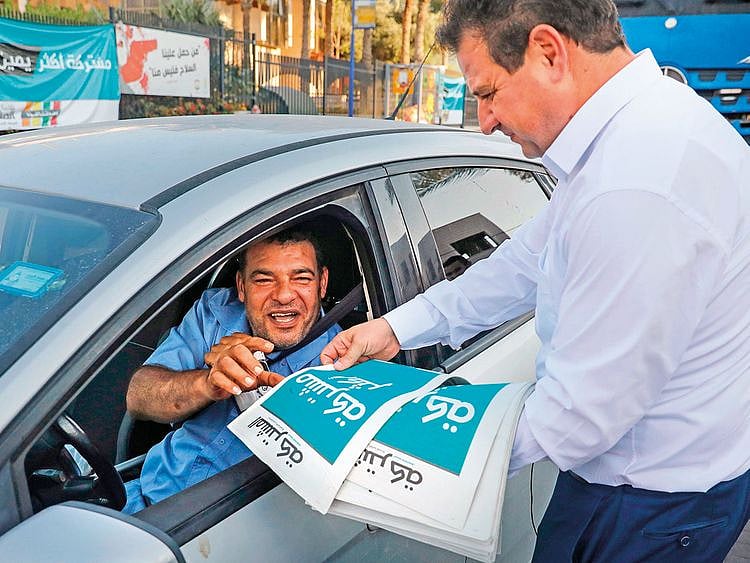Palestinians shrug off Israel’s elections
When it comes to Palestine, there is no difference in approach of Israeli candidates

Mash’a, West Bank - Barhoum Saleh’s town is surrounded by Jewish colonies, the sign above his roadside mechanic shop is in Hebrew, most of his customers are Israeli and he needs an Israeli permit to visit the beach a half hour’s drive away.
But unlike his Jewish neighbour, he can’t vote in next week’s elections.
Saleh is among the 2.5 million Palestinians in the West Bank who have no voice in choosing Israel’s next government and no control over whether it decides to annex part or all of the occupied territory, as Prime Minister Benjamin Netanyahu has vowed to do . With the peace process having sputtered to a halt a decade ago, they also have little hope of getting a state of their own anytime soon.
Saleh, who is not particularly political, just wishes it was easier to take his kids to the beach.
Israelis who get their cars serviced at his shop describe their trips: one drove down to Egypt’s Sinai, another vacationed in Thailand. But while they can travel in and out of the West Bank freely, Saleh must apply for a permit to enter Israel - and they are not given for family vacations. So, a few years back, he took his family to neighbouring Jordan and its Red Sea port of Aqaba, several hours away.
“My kids were astonished when they saw the sea,” he recalls, smiling at the memory. “They said, what’s that?”
The movement restrictions apply to all Palestinians in the West Bank, even those, like Saleh, who live near major colonies blocs that the Israeli regime expects to keep in any peace agreement. His shop is just down the road from Elkana, the colony where Netanyahu kicked off his campaign by vowing to annex parts of the West Bank.
A poll released this week by the Jerusalem Media and Communication Center, in partnership with the German foundation Friedrich-Ebert-Stiftung, found that more than 40 per cent of Palestinians believe the Israeli elections will have a negative impact, with another 25 per cent saying they would have no impact at all. Fewer than 20 per cent thought the impact would depend on the outcome. The poll surveyed 1,200 people in the West Bank and Gaza and had a margin of error of plus or minus 3 percentage points.
“When it comes to these big issues that affect Palestinians, we haven’t seen that there’s any difference,” said Diana Buttu, a former legal adviser to the Palestinian negotiating team. “Both of them believe in [colony] construction, both of them believe in this concept of greater Israel and both of them believe in being hard on Palestinians.”
Maraei Maraei runs a hardware store in the West Bank village of Mas’ha, which is separated from the Elkana colonies by a wall and a closed metal gate. Elkana’s colonists can vote, while residents of Mas’ha cannot. Still, he shrugs off the talk of annexation.
“It would be hard for them to annex this area because there are too many of us,” he said. “They want land without people.”
The question of what to do with the West Bank, which Israel captured in the 1967 war and would be the heartland of any future Palestinian state, once dominated Israeli elections.
But that debate has faded in recent years , and has hardly featured in the campaign ahead of the September 17 vote. Netanyahu’s main rivals have dismissed his talk of annexation as a campaign stunt but have not opposed it on the merits.
Israel’s Arab citizens, who make up 20 per cent of the population and largely identify with the Palestinians, are eligible to vote. But it’s unclear whether they will turn out in large enough numbers to make a difference, or whether a Jewish coalition would partner with them.
Ayman Odeh, leader of the main Arab faction in Israel’s parliament, has said he would consider joining a government led by Gantz depending on his political agenda, including his seriousness about pursuing peace with the Palestinians.
Sign up for the Daily Briefing
Get the latest news and updates straight to your inbox
Network Links
GN StoreDownload our app
© Al Nisr Publishing LLC 2026. All rights reserved.